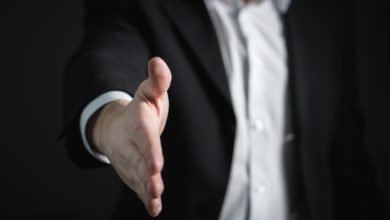This Pharmacist Gives Monkeypox Vaccines at Gay Bars

Clint Hopkins and his husband, Joel Hockman, own Pucci’s Pharmacy in Sacramento, but you might not always find them there. The monkeypox epidemic began in America, and the couple, along with their team of healthcare professionals, are equally likely to be found at bars, private parties, or local LGBTQ centers.
“We’re in a bit of a unique situation, because we’re LGBT and part of the community that is at highest risk,” says Hockman, COO of Pucci’s. “We’re aware of social events that are going on through our social network, so we reached out and said, ‘Hey, we know you’re going to get together—let us come and vaccinate everybody while they’re there.”
Jynneos is a vaccine that prevents monkeypox. It can be used to protect against infection. After people had been exposed to the virus at large events, this latest outbreak spread rapidly among LGBTQ people across America and other countries. But vaccines don’t always reach this high-risk group because of stigma. People are concerned that they will be identified as LGBTQ. Others prefer to keep their sexual orientation private with friends and family. This could occur if someone is seen in line at a clinic or at testing sites to get a monkeypox vaccination. Hopkins and his colleagues are working to remove these obstacles. The Sacramento Public Health Department provided them with doses. They began to offer monkeypox vaccinations at their local pharmacy. “We gave doses to people who otherwise might not have come in for vaccination,” says Hopkins.
That’s where Rick Russell got his first dose in July. “It was pretty awesome and pretty amazing,” says Russell, a retired Navy firefighter and recruiter, who is now an analyst with the California Military Department. “They gave 75 vaccinations to individuals who otherwise had no other way or means of idea about how to get vaccinated. What they are doing for the community here in Sacramento—there’s nobody else who has ever done anything like that.”
Their pop-up monkeypox vaccination clinics have been heard all over Nevada. People are now making two hours to Sacramento to be vaccinated. “Nobody has looked out for the community like they have, and they’re doing it just because they’re a part of our community,” Russell says.
Learn More: Monkeypox: What it Really Feels Like
Pucci’s Pharmacy has a legacy of serving the underserved in its community. Hopkins and Hockman acquired the business from Tom Nelson. Tom Nelson had been one of only a few pharmacists in the region who filled prescriptions to new anti-HIV medicines during the AIDS outbreak in the 1980s. This was a crucial time in HIV history and has since become incredibly important in providing lifesaving treatment for those living with HIV. Hopkins and Hockman offer HIV testing in the pharmacy. They also prescribe PrEP to protect HIV-positive people.
Hopkins reached out the county’s health department to offer his assistance in mass vaccination campaigns after COVID-19 struck. When the first cases of monkeypox started to emerge, Hopkins was contacted by the county to assist with administering the vaccines. “We said, ‘Absolutely, this is our community,’” says Hopkins. “Not only is it our local community in Sacramento that we’re helping, but as LGBT owners, it’s our broader community that the virus was affecting the most. It was very important for us to get out ahead of it.”
The duo’s nomadic vaccination clinics have grown so popular that they consume their days, nights, and weekends. At a recent clinic at the Sacramento LGBTQ Center on one Saturday in August, Hopkins’ team vaccinated 309 people. His team has already administered over half the doses of monkeypox vaccine to Sacramento County.
Hopkins and Hockman received reimbursements for COVID-19 therapies and vaccines, but that financial support is not available for monkeypox, they claim. The monkeypox vaccine isn’t covered by the government, and requires only two doses. This is in contrast to COVID-19 shot. Hopkins states that the $19 cost per shot is covered by the few insurance companies that cover them. This does not include the costs of administering the vaccine and staff. “That’s less than half the amount that was paid for COVID-19 vaccines, and there is no fund for uninsured patients.” He also points out that because of the stigma surrounding monkeypox, some people don’t want to provide their health insurance information because they don’t want their employer, family, or significant other to find out they got the monkeypox vaccine. In some instances, the vaccines are provided free of charge. “We need a fund to pay for those patients to be vaccinated in order to protect them,” he says. Hopkins states that Hopkins has still not received reimbursement for monkeypox vaccines which he had administered.
For now, “we’re doing this for charity,” says Hopkins. “But in a lot of other communities, they don’t have a pharmacy like ours that’s owned by LGBT owners who are concerned about taking care of their community.”
Hopkins’ and Hockman are serving as examples, however, for other communities and even the federal government. In August, Dr. Rochelle Walensky from the U.S. Centers for Disease Control and Prevention said that they were planning to give monkeypox vaccines to at-risk groups at upcoming pride events.
Read More From Time





